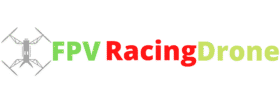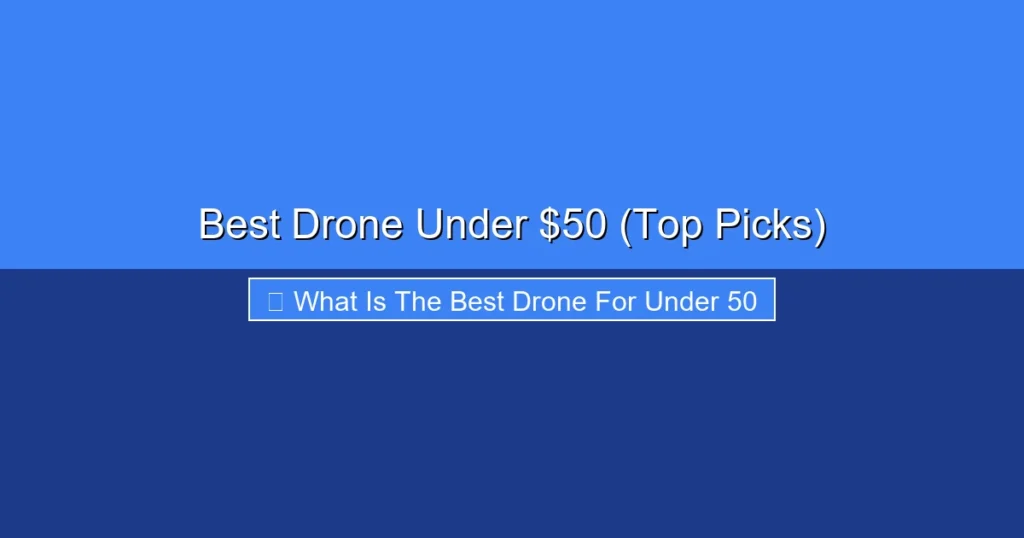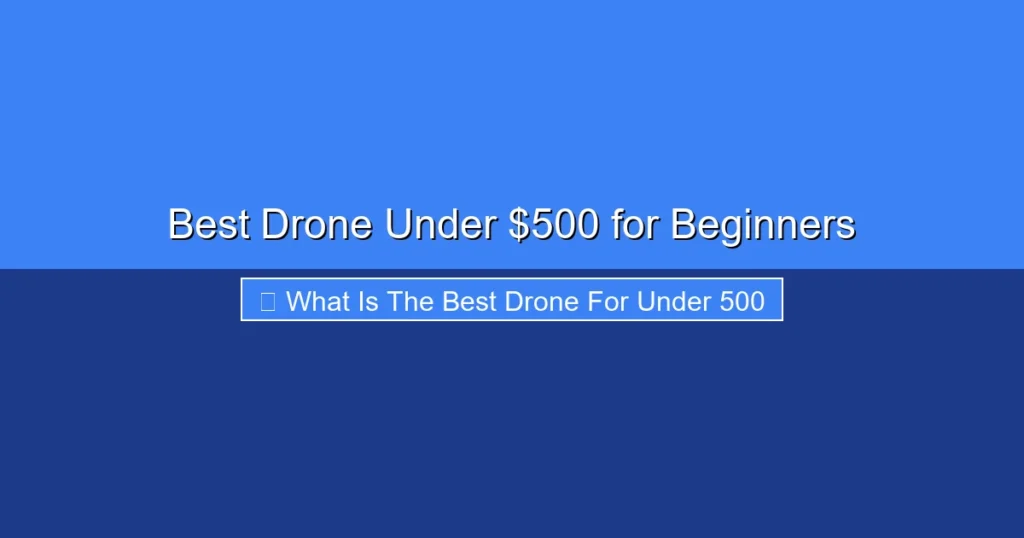
Featured image for this comprehensive guide about what are the best drones to buy?
What Are The Best Drones To Buy? Your Ultimate 2024 Guide
The sky is no longer the limit – it’s your canvas, your playground, and your vantage point, all thanks to the incredible evolution of drone technology. Whether you’re an aspiring aerial photographer, a thrill-seeking FPV pilot, a professional seeking sophisticated tools, or simply someone looking for a fun new hobby, the market for drones has exploded with options. But with so many models, features, and price points, figuring out what are the best drones to buy can feel like navigating a complex maze.
Gone are the days when drones were clunky, hard to control, and exorbitantly expensive. Today’s drones boast advanced cameras, intelligent flight modes, incredible stability, and impressive battery life, making aerial exploration more accessible and enjoyable than ever before. From pocket-sized marvels perfect for beginners to cinematic beasts capable of capturing Hollywood-grade footage, there’s a drone designed for every need and every budget.
This comprehensive guide is your essential resource for cutting through the noise. We’ll break down the key factors to consider, explore the top contenders across various categories, and help you pinpoint exactly what are the best drones to buy for *your* specific requirements. Get ready to elevate your perspective and embark on an exciting aerial adventure!
Quick Answers to Common Questions
What’s the best drone to buy if I’m a complete beginner?
For beginners, the best drones to buy are often user-friendly models like the DJI Mini series or Ryze Tello. They offer stable flight and essential features without overwhelming you, making them fantastic for learning the ropes.
Do the best drones to buy always have to be expensive?
Not at all! While professional-grade drones can be pricey, there are many excellent drones to buy at mid-range prices that offer fantastic cameras and features for most hobbyists. It truly depends on your specific needs and budget.
What’s the most important feature to look for in the best drones to buy?
For many, camera quality is paramount if you plan on aerial photography or videography. However, for sheer ease of use and safety, features like GPS stability and obstacle avoidance make for the best drones to buy, enhancing your flying experience significantly.
I want great photos and videos – what are the best drones to buy for that?
If stunning visuals are your priority, look for drones with high-resolution cameras (4K is ideal), stable gimbals, and intelligent flight modes. The DJI Mavic series consistently offers some of the best drones to buy for top-tier aerial photography and videography.
Are there any affordable options for the best drones to buy that are still good quality?
Absolutely! You don’t need to break the bank to find quality. Brands like Holy Stone and Potensic offer some of the best drones to buy for their price point, providing decent cameras and stable flight perfect for casual use or as a backup drone.
📋 Table of Contents
- Understanding Your Drone Needs: Factors Before You Buy
- Top Drones for Beginners: Easy to Fly, Great for Learning
- The Best Camera Drones for Photography and Videography
- Professional and Commercial Drones: When Only the Best Will Do
- FPV and Racing Drones: The Thrill of First-Person View
- Budget-Friendly Drones That Don’t Compromise Too Much
- Drone Comparison Table: Popular Models at a Glance
- Conclusion: Finding Your Perfect Aerial Companion
Understanding Your Drone Needs: Factors Before You Buy
Before diving into specific models, it’s crucial to understand that the “best” drone is highly subjective. It depends entirely on your intentions, skill level, and budget. Taking the time to consider these factors will significantly narrow down your choices and ensure you make a purchase you won’t regret.
Purpose: Photography, Racing, Fun, or Professional Use?
Your primary reason for wanting a drone is the most critical determinant.
- Aerial Photography/Videography: If your goal is stunning landscapes, cinematic shots, or professional real estate photos, you’ll prioritize camera quality (sensor size, resolution, frame rates), gimbal stability, and intelligent flight modes. You’ll want drones capable of capturing breathtaking visuals.
- Recreational/Fun Flying: For casual flying around the park, learning the basics, or simply enjoying a new gadget, ease of use, durability, and a lower price point might be more important. These drones offer excellent value and a fantastic entry point into the hobby.
- FPV (First-Person View) Racing/Freestyle: If adrenaline-pumping speed, acrobatic maneuvers, and immersive flight are your jam, you’ll look for agile, durable, and highly responsive FPV drones. These require a different skill set and often involve a more hands-on approach to building or maintenance.
- Professional/Commercial Applications: For surveying, inspections, search and rescue, or high-end filmmaking, you’ll need robust, reliable drones with advanced payload capabilities, precise GPS, and potentially specialized sensors (thermal, LiDAR). These are often significant investments.
Skill Level: Beginner, Intermediate, or Expert?
Drones range from remarkably easy-to-fly models with extensive safety features to complex machines that demand significant piloting skill.
- Beginner: Look for features like GPS-assisted hovering, obstacle avoidance, automatic take-off/landing, and robust construction. These drones are forgiving and allow you to learn the ropes without too much stress.
- Intermediate: You might be ready for more manual control, better camera capabilities, and fewer assists. These drones often balance ease of use with advanced features.
- Expert: Experienced pilots might seek drones with full manual control, customizable settings, and the ability to handle complex maneuvers or specialized payloads.
Budget: How Much Are You Willing to Spend?
Drone prices vary wildly, from under $100 to tens of thousands. Setting a realistic budget from the outset helps manage expectations.
- Under $200: Primarily toy drones, mini drones, or very basic camera drones. Great for learning.
- $200 – $800: Excellent entry-level camera drones, often with 2.7K or 4K cameras, decent flight times, and some intelligent features. This is where many hobbyists find their sweet spot.
- $800 – $1500: Enthusiast-grade camera drones with superior 4K cameras, longer range, advanced obstacle avoidance, and more robust build quality.
- $1500+: Professional-grade camera drones, FPV systems, or specialized commercial drones with high-end sensors and features.
Key Features: Camera, Battery Life, Range, and Safety
Once you’ve defined your purpose, skill, and budget, consider these crucial specifications:
- Camera Quality: Look at sensor size (larger is generally better), resolution (4K, 5.4K, 8K), frame rates, and whether it has a 3-axis gimbal for stabilization.
- Battery Life: Flight time is critical. Most consumer drones offer 20-40 minutes. Remember, marketing numbers are often under ideal conditions, so factor in a few minutes less in real-world use. Investing in extra batteries is almost always a good idea.
- Transmission Range: How far can you fly the drone while maintaining a strong video feed and control signal? Modern drones offer ranges from a few hundred meters to several kilometers. Always adhere to local regulations regarding Line of Sight (LOS) flying.
- Obstacle Avoidance: Sensors that detect and avoid obstacles are invaluable, especially for beginners. The more directions the drone senses (forward, backward, sideways, upward, downward), the safer it generally is.
- GPS and Stability: GPS allows for stable hovering, accurate positioning, and intelligent flight modes.
- Portability: Do you need a drone that folds down and fits easily into a backpack? Many popular models prioritize this.
| Drone Model | Best For | Key Features | Approx. Price Range |
|---|---|---|---|
| DJI Mini 3 Pro | Travel, Everyday Creators, Portability | Sub-250g, 4K/60fps HDR video, Tri-directional obstacle sensing, Compact & foldable. | $750 – $900 |
| DJI Air 3 | Advanced Hobbyists, Content Creators, Balanced Performance | Dual Primary Cameras (Wide-Angle & 3x Tele), Omnidirectional obstacle sensing, 4K/60fps HDR, Extended flight time. | $1099 – $1349 |
| DJI Mavic 3 Classic | Professional Aerial Photography & Videography | Hasselblad 4/3 CMOS camera, 5.1K/50fps video, Omnidirectional obstacle sensing, Long flight duration. | $1600 – $1800 |
| Ryze Tello | Beginners, Kids, Indoor Flying, Learning Basics | Lightweight (80g), Easy app control, 720p video, Educational coding capabilities. | $99 – $120 |
Top Drones for Beginners: Easy to Fly, Great for Learning
Starting your drone journey should be fun, not frustrating. These drones are designed with ease of use, stability, and durability in mind, making them perfect for those just dipping their toes into the aerial world.
DJI Mini Series (Mini 2 SE, Mini 3, Mini 4 Pro)
DJI has perfected the art of making powerful drones accessible, and their Mini series is a testament to this. Weighing under 250 grams, these drones often bypass registration requirements in many regions (always check local laws!).

Learn more about what are the best drones to buy? – what are the best drones to buy?
Image source: mywifequitherjob.com
- DJI Mini 2 SE: An excellent entry point, offering 2.7K video, a 3-axis gimbal, and impressive flight stability for its price. It’s incredibly user-friendly and durable, making it ideal for learning without a significant investment. Expect up to 31 minutes of flight time.
- DJI Mini 3: A step up, featuring a better 4K HDR camera, true vertical shooting for social media, and slightly improved flight performance. It’s a fantastic all-rounder for aspiring aerial photographers.
- DJI Mini 4 Pro: The pinnacle of the Mini series, boasting omnidirectional obstacle sensing, 4K/60fps HDR video, and an impressive O4 video transmission system. While pricier, it offers features usually found in larger, more expensive drones, making it arguably one of the best drones to buy for serious beginners who want room to grow.
Ryze Tello
Powered by DJI technology, the Ryze Tello is often considered the ultimate starter drone. It’s tiny, incredibly robust, and features Intel processing for stable flight. It offers 720p video, “EZ Shots” for cinematic moves, and can be programmed with Scratch, making it educational too.
- Pros: Extremely affordable, durable, easy to fly (even indoors), programmable.
- Cons: Limited range, no gimbal stabilization (digital stabilization only), 720p camera.
Potensic Atom Series
Potensic has emerged as a strong competitor in the sub-250g category, offering features often found in more expensive models at a highly competitive price.
- Potensic Atom SE/Atom: These drones deliver solid 4K video, good flight times (around 30 minutes), and reliable GPS stabilization. They offer a great balance of features and affordability, challenging DJI’s dominance in the budget-friendly space.
The Best Camera Drones for Photography and Videography
When your priority is capturing stunning aerial imagery, camera quality, stability, and advanced flight features become paramount. These drones are crafted for creators.
DJI Air Series (Air 3)
The DJI Air series consistently strikes a fantastic balance between portability, performance, and price, often making them the best drones to buy for enthusiasts.
- DJI Air 3: A significant upgrade, featuring a groundbreaking dual-primary camera system (wide-angle and 3x medium telephoto), allowing for incredible versatility in shot composition. It offers 4K/60fps HDR video, omnidirectional obstacle sensing, and a fantastic O4 transmission system, packing pro-level features into a relatively compact body.
DJI Mavic Series (Mavic 3 Classic, Mavic 3 Pro)
The Mavic 3 series represents the pinnacle of consumer-grade aerial imaging, often chosen by semi-professionals and serious hobbyists who demand the absolute best.
- DJI Mavic 3 Classic: Features a superb 4/3 CMOS Hasselblad camera that delivers stunning 5.1K video and 20MP stills. It offers exceptional dynamic range, low-light performance, and long flight times (up to 46 minutes). A fantastic choice for those prioritizing top-tier image quality in a single-camera setup.
- DJI Mavic 3 Pro: The ultimate iteration, boasting a revolutionary triple-camera system (Hasselblad 4/3 CMOS, 1/1.3-inch CMOS 3x tele, 1/2-inch CMOS 7x tele). This unparalleled versatility allows for truly cinematic storytelling without changing lenses. With 5.1K video, extensive safety features, and incredible battery life, it’s arguably one of the best drones to buy for professional-level creators.
Autel Evo Lite+ / Nano+
Autel Robotics offers compelling alternatives to DJI, often with competitive features and slightly different approaches.
- Autel Evo Lite+: A direct competitor to the DJI Air series, featuring a large 1-inch CMOS sensor capable of 6K video, adjustable aperture, and excellent low-light performance. It’s a strong contender for those seeking superior image quality without the Mavic 3 Pro’s price tag.
- Autel Evo Nano+: Autel’s sub-250g offering, boasting a 1/1.28-inch CMOS sensor for 4K video. It’s a powerful, compact drone that competes directly with DJI’s Mini 3/4 Pro, offering impressive imaging capabilities in a tiny package.
Skydio 2+
The Skydio 2+ stands out for its unmatched autonomous flight capabilities. Instead of focusing solely on camera specs, Skydio excels at tracking subjects and navigating complex environments with incredible precision, making it ideal for action sports, self-filming, or challenging terrain.
- Pros: Industry-leading obstacle avoidance and subject tracking, excellent for dynamic shots without a dedicated pilot.
- Cons: Less emphasis on manual control, image quality, while good, doesn’t quite match top DJI/Autel models.
Professional and Commercial Drones: When Only the Best Will Do
For serious commercial applications, industrial inspections, high-budget filmmaking, or specialized data collection, consumer drones often don’t cut it. These professional-grade machines offer robust performance, specific payloads, and unmatched reliability.
DJI Inspire 3
The DJI Inspire 3 is a beast designed for the most demanding film sets and professional cinematographers. It features a full-frame 8K Zenmuse X9-8K Air gimbal camera, RTK positioning for centimeter-level accuracy, and an integrated FPV camera. Its dual-operator control system allows one pilot to fly and another to operate the camera, making it ideal for complex, high-production shoots.
- Key Features: 8K full-frame video, RTK precision, dual control, robust build, interchangeable lenses.
DJI Matrice Series
The Matrice series (e.g., Matrice 300 RTK, Matrice 350 RTK) are workhorses built for industrial inspections, public safety, surveying, and infrastructure management. They are designed to carry multiple payloads simultaneously, including thermal cameras, zoom cameras, and LiDAR sensors, providing critical data for various industries.
- Key Features: IP rating for harsh weather, long flight times, advanced safety features, multiple payload options, enterprise-grade software integration. These are certainly among the best drones to buy for business operations.
FPV and Racing Drones: The Thrill of First-Person View
FPV (First-Person View) drones offer an entirely different flying experience – immersive, fast, and incredibly exciting. Pilots wear goggles that display a live feed from the drone’s camera, making them feel like they’re actually in the cockpit.
DJI Avata
DJI’s “cinewhoop” style FPV drone, the Avata, offers a more user-friendly entry into the FPV world. It’s designed for safe, agile indoor and outdoor flying, with propeller guards and sophisticated stabilization. It can capture 4K video and works seamlessly with DJI’s Goggles and Motion Controller for intuitive flight.
- Pros: User-friendly FPV experience, durable design, 4K camera, good safety features.
- Cons: Less customizable than traditional FPV builds, not a true racing drone.
Build-Your-Own FPV Drone Kits
For the true enthusiast, building your own FPV drone is a rite of passage. Kits provide all the necessary components (frame, motors, flight controller, ESCs, camera, VTX, etc.) and require soldering and assembly. This option offers maximum customization, repairability, and a deep understanding of how these machines work.
- Pros: Full customization, cheaper to repair, deep learning experience, tailored to specific flying styles (racing, freestyle, long-range).
- Cons: Steep learning curve, requires technical skills, time-consuming.
Pre-built Racing Drones (iFlight, GepRC, BetaFPV)
If you want the FPV experience without the build process, several brands offer excellent pre-built FPV drones. These are often ready-to-fly (RTF) or bind-and-fly (BNF), meaning you just need to bind them to your radio controller and possibly add FPV goggles. Brands like iFlight, GepRC, and BetaFPV are popular for their durable frames and powerful components.
- Pros: Ready to fly quickly, powerful and agile, durable for crashes, good community support.
- Cons: Can still be complex to set up and fine-tune, less customization than DIY.
Budget-Friendly Drones That Don’t Compromise Too Much
You don’t need to break the bank to enjoy drone flying. Many affordable drones offer surprisingly good features and performance, especially for beginners or those with a casual interest.
Sub-$100 Options (Holy Stone, Syma)
These drones are perfect for absolute beginners, kids, or just for indoor fun. They are typically very durable, often have propeller guards, and are designed to withstand crashes. While camera quality will be basic (often 720p or 1080p without a gimbal), they offer headless mode and altitude hold for easy piloting.
- Examples: Holy Stone HS110D, Syma X5C, Ryze Tello (often falls into this category with sales).
- Best For: Learning basic controls, indoor flying, gifts, general recreational fun.
Sub-$300 Options (Potensic Atom SE, Older DJI Mini Models)
This price bracket offers a significant jump in quality and features. You can often find drones with true 4K cameras, 3-axis gimbals, GPS stabilization, and decent flight times (20-30 minutes). These are excellent value propositions for hobbyists who want good aerial photos and videos without a premium price tag.
- Examples: Potensic Atom SE, Holy Stone HS720G, sometimes refurbished or older generation DJI Mini 2/Mini SE models.
- Best For: Aspiring aerial photographers, those wanting a reliable outdoor flyer with good camera. For many, these represent some of the best drones to buy given their features for the price.
Drone Comparison Table: Popular Models at a Glance
To help visualize some of the key differences between popular models across categories, here’s a comparative look at a few highly-rated drones. Please note that “Price Range” can vary significantly based on sales, bundles (Fly More Combos), and retailers.
| Drone Model | Category | Key Camera Spec | Max Flight Time (Approx.) | Obstacle Avoidance | Weight | Price Range (Approx. USD) |
|---|---|---|---|---|---|---|
| Ryze Tello | Beginner/Fun | 720p HD Video | 13 min | None | 80g | $99 – $129 |
| DJI Mini 2 SE | Beginner/Budget | 2.7K Video, 12MP Photo | 31 min | None | <249g | $299 – $379 |
| Potensic Atom SE | Budget 4K/Beginner | 4K/30fps Video, 12MP Photo | 31 min | None | <249g | $249 – $329 |
| DJI Mini 4 Pro | Advanced Mini/Enthusiast | 4K/60fps HDR, 48MP Photo | 34 min | Omnidirectional | <249g | $799 – $1159 |
| DJI Air 3 | Enthusiast/Prosumer | Dual 4K/60fps HDR (Wide & 3x Tele), 48MP Photo | 46 min | Omnidirectional | 720g | $1099 – $1549 |
| Autel Evo Lite+ | Enthusiast/Prosumer | 6K/30fps Video, 1-inch Sensor, 20MP Photo | 40 min | 3-way | 835g | $1199 – $1699 |
| DJI Mavic 3 Classic | Professional Photo/Video | 5.1K/50fps, 4/3 CMOS Hasselblad, 20MP Photo | 46 min | Omnidirectional | 895g | $1599 – $1999 |
| DJI Avata | FPV/Cinewhoop | 4K/60fps, 1/1.7-inch CMOS, 48MP Photo | 18 min | Downward/Backward | 410g | $629 – $1388 (with goggles/controller) |
Conclusion: Finding Your Perfect Aerial Companion
Navigating the vast world of drones to find what are the best drones to buy can be a journey in itself, but with the right information, it becomes an exciting exploration. We’ve covered everything from understanding your core needs to exploring top models across various categories, ensuring you’re well-equipped to make an informed decision.
Remember, the “best” drone isn’t a universal title; it’s the one that perfectly aligns with your skill level, intended use, and budget. Whether you’re chasing cinematic dreams with a DJI Mavic 3 Pro, embarking on an adrenaline-fueled FPV adventure with the DJI Avata, or simply enjoying the skies with a budget-friendly DJI Mini 2 SE, there’s a drone out there waiting to unlock new perspectives for you.
Take the time to assess your priorities, compare features, and read reviews, and you’ll be soaring through the skies with confidence in no time. The world from above is truly magnificent – go capture it!
Frequently Asked Questions
What are the best drones for beginners to start flying?
For beginners, the DJI Mini series, like the Mini 3 Pro or Mini 4 Pro, are excellent choices due to their user-friendly controls, compact size, and impressive camera capabilities. The Ryze Tello also offers a very affordable entry point for learning basic flight mechanics indoors.
Which drones are best for professional aerial photography and videography?
For professional-grade aerial photography and videography, the DJI Mavic 3 Pro and DJI Air 3 stand out with their multi-camera systems, large sensors, and advanced intelligent flight modes. Autel Robotics Evo Lite+ also provides a strong alternative with excellent low-light performance.
How much should I expect to spend on a quality drone?
The cost of a quality drone varies significantly based on features and performance. Entry-level recreational drones can start from around $300-$700, while mid-range models with good cameras typically cost $800-$1500. Professional or advanced cinematic drones often range from $2000 upwards.
What key features should I consider when buying a drone?
When buying a drone, prioritize camera quality (resolution, sensor size), battery life for longer flight times, and reliable GPS for stable hovering. Also, consider obstacle avoidance sensors for safety, flight range, and portability if you plan to travel frequently.
Are there any good drones available for kids or hobbyists on a budget?
Absolutely! For kids or budget-conscious hobbyists, the Ryze Tello is a fantastic option for learning to fly without a significant investment. Brands like Holy Stone and Potensic also offer durable, easy-to-fly drones at very affordable price points, perfect for recreational use.
What are the best drones for experienced pilots looking for advanced capabilities?
Experienced pilots seeking advanced features will find the DJI Mavic 3 Pro or DJI Air 3 to be exceptional, offering superior image quality, extended flight times, and sophisticated obstacle sensing. For more specialized or industrial applications, the Autel Evo Max 4T provides even more robust capabilities.



